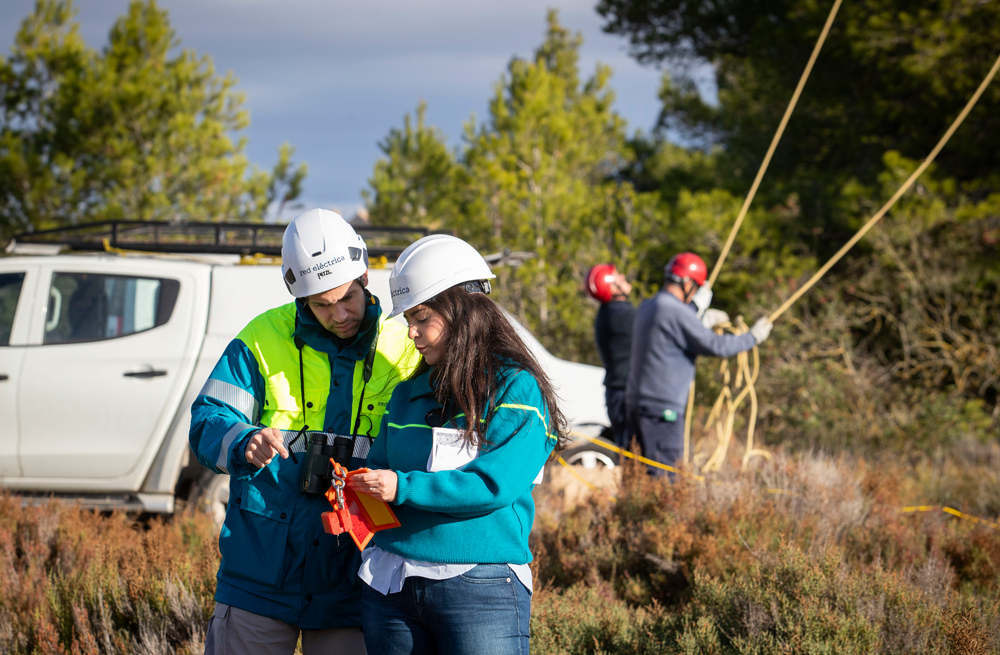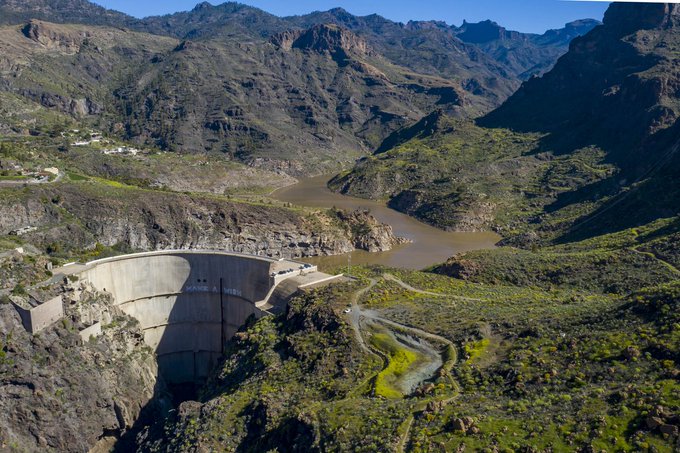Discover what Red Eléctrica is, what we do, and why we are the backbone of the electricity system in Spain and the ecological transition.
Red Eléctrica contributes to the social insertion of young people in Algeciras and San Roque through a film-making training course
- The initiative, Salto del Eje (axis jump), will reach more than 17,000 adolescents in the area, where child poverty affects four out of every 10 children, and is expected to rolled out to other territories
- The project is the brainchild of the High Commissioner against Child Poverty, Federación Pan-talla, African Film Festival and social organisations with the support of Red Eléctrica, the Minis-try of Culture and Sport and the Cádiz Provincial Government
Participating in cultural activities and artistic creation brings many benefits to children, especially the most vulnerable. These benefits include learning and developing new skills that can be applied to different environments in their lives that in turn contribute, among other things, to better educational performance, improved socio-emotional well-being, increased self-confidence and the promotion of hidden talents. Given the potential that culture offers for improving the lives of children and adolescents, it is necessary to ensure that they are as culturally active as they can possibly be, by being creative subjects.
This is the aim of the ‘Salto del Eje’ pilot programme, through which more than 200 young people aged between 14 and 17 from Campo de Gibraltar, in the province of Cádiz, will receive film-making training, which will involve the production of several short films at the end of the training programme. The participating teenagers will be the protagonists, deciding what will be told and how it will be told, and will be accompanied throughout the entire creative process by film industry professionals.
The pilot project has been designed by the High Commissioner against Child Poverty, Federación Pantalla and the African Film Festival-FCAT. It has been implemented with the collaboration of Fundación Márgenes y Vínculos and Coordinadora Alternativas, funded by Red Eléctrica and with the collaboration of the Ministry of Culture and Sport and the Provincial Council of Cádiz. Upon completion, the short films resulting from the programme will be screened at the African Film Festival-FCAT, held in Tarifa between 27 May and 5 June, with more than 5,000 children and adolescents attending in-person sessions and up to a further 12,000 online, as well as at other national film festivals.
Once the pilot programme has been launched, it is expected to be rolled out around the territory and scaled up to other film festivals by the High Commissioner against Child Poverty and Federación Pantalla, an organisation that brings together more than 180 film festivals in Spain with an audience of more than a million spectators. This programme is part of the Alianza País Pobreza Infantil Cero (Zero Child Poverty Country Alliance), launched by the High Commissioner.
The pilot programme will be held in the neighbourhoods of El Saladillo, in Algeciras, and Puente Mayorga, in San Roque, two municipalities that have districts with an incidence of child poverty above 40%, well above the national average of 27.4%. In this way, the film-making creation being close to the territory proposed by the Salto del Eje pilot programme is not only beneficial for the participants, but also for bringing the community together and fostering social cohesion in the area where it is being carried out.
Social divide in culture
Access to culture for children and adolescents is, above everything else, a human right, as stated in article 31 of the UN Declaration on the Rights of the Child, which states that the right of children to full and equal participation in cultural, artistic, recreational and leisure life shall be respected and promoted.
However, access to and participation in culture in Spain is largely down to the socio-economic situation of the household in which children and adolescents live: both in terms of going to cultural events such as cinemas, theatre, concerts and visits to places of cultural interest, as well as how often they go.
Around two out of ten adolescents on the poverty threshold do not attend cultural events or venues because they cannot afford to do so. In the case of cinema, for example, the percentage of adolescents who are unable to go due to lack of economic resources is twice as high if they are in a situation of vulnerability.
Similarly, higher income leads to higher investment in culture: households with higher income children and adolescents spend on average almost three times as much on cultural goods and services as lower income households do.
Culture strategy that transforms
Taking on policies that ensure a guaranteed income or access to basic services, such as education and health care, are essential to break the poverty cycle. However, they are not enough on their own. The integration of cultural policies in the agenda of the fight against child poverty, so as to guarantee access and, above all, the full participation of children and adolescents in cultural activities, can make a unique contribution to combating the most hidden consequences of poverty or social exclusion, such as mental health or symbolic distancing from institutions.
Thanks to the potential of culture to garner change, the High Commissioner against Child Poverty and the Ministry of Culture and Sport are designing a State Strategy entitled 'Culture that transforms' to combat child poverty, a pioneering strategy in Spain that will be unveiled over the coming months and which includes this pilot programme, with a dual objective: on the one hand, to promote the inclusion of adolescents involved in the programme and, on the other, to expose the realities hidden from the general public, such as certain vulnerable contexts in Spain.
In this way, this programme advocates approaching reality from a different angle, a metaphorical reference to the "axis jump" in filming, to provide a different perspective: that of adolescents who live and grow up in vulnerable environments in different parts of the country.










